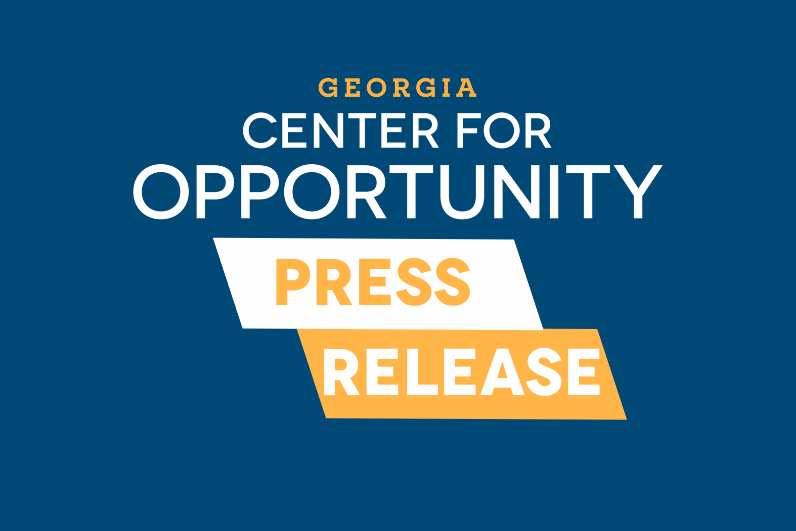PEACHTREE CORNERS, GA—Georgia’s prison population has shrunk in recent years, but a new Manhattan Institute report written by Joshua Crawford, a Public Safety Fellow at the Georgia Center for Opportunity, shows that the decreasing number of inmates hasn’t translated to meaningful savings or improvements in public safety for Georgians.
Instead, the report reveals that corrections spending has risen as Georgia’s prison population has declined. The number of incarcerated Georgians dropped by 11.7% between 2010 and 2023, but corrections spending increased by 23.6% over the same period. The trends in Georgia are consistent with those in almost every other state—incarceration rates are falling while corrections budgets are growing.
The data confirms that reducing the number of people in prison isn’t the answer to decreasing the state budget in Georgia or elsewhere.
As Crawford says, “Georgia lawmakers should focus conversations about criminal justice where they belong: on protecting the public and creating a fair and just system that values the lives, liberty, and property of Georgia families. Those are things lawmakers can meaningfully impact immediately, while criminal justice budgets are more complex and fixed.”
At a glance: facts on the prison population and corrections spending in Georgia
- In 2023, 49,814 people were incarcerated in Georgia.
- From 2010-2023, Georgia’s prison population decreased by 6,618 people, or 11.7%.
- From 2010-2023, Georgia’s corrections spending increased by $258,546,766, or 23.6%.
- In fiscal year 2023, Georgia’s Department of Corrections budget was $1,354,962,683, or 2.2% of the state’s total budget.
A closer look at Georgia’s inmate numbers and corrections spending
The number of people in Georgia’s prisons decreased by 6,618 to 49,814 from 2010-2023, but corrections spending in Georgia increased by $258,546,766 during the same time frame.
Notably, Crawford points out most individuals in Georgia’s prisons are violent and repeat offenders, and the majority have had five or more prior arrests before incarceration. Because these offenders pose higher public safety risks and drive most of the system’s costs, reducing inmates at the margins does little to generate savings.
Even with the growth in spending, Georgia’s overall Department of Corrections budget in fiscal year 2023 was $1,354,962,683, just 2.2% of the state’s total budget. The vast majority of state dollars went toward other initiatives that help Georgians prosper, including education, public welfare, healthcare, and highways.
Regarding corrections spending, Crawford explained that “because prison budgets are driven by fixed costs like payroll, maintenance, and facilities, modest reductions in the number of inmates don’t free up meaningful savings. Unless states close prisons or dramatically cut staffing, costs remain largely unchanged.”
Reshaping the conversation on criminal justice policy
Long-standing arguments continue about reducing the prison population as a way to decrease Georgia’s overall spending. But the data shows that policymakers need to focus instead on building a more effective criminal justice system that addresses the true costs of crime and helps Georgians flourish.
One crime was committed every 2 minutes and 33 seconds in Georgia in 2024. The effects of this criminal activity are devastating for local communities. Violent crime, in particular, takes a huge toll on property values, employment, economic opportunities, and people’s upward mobility.
Ensuring safety is a core government responsibility, and it’s the first step in creating more prosperous communities throughout Georgia. Public safety is essential to improving economic opportunities, building healthy relationships among neighbors, and enabling Georgians to thrive.
With effective reforms, policymakers can make safety a reality for Georgia’s residents, breaking the interconnected cycles of poverty and crime and transforming communities for generations to come.
About the Georgia Center for Opportunity
The Georgia Center for Opportunity is a nonprofit organization that works to remove barriers to ensure that every person—no matter their race, past mistakes, or the circumstances of their birth—has access to safe communities, a quality education, fulfilling work, and a healthy family life.
###
Georgia Center for Opportunity (GCO) is independent, non-partisan, and solutions-focused. Our team is dedicated to creating opportunities for a quality education, fulfilling work, and a healthy family life for all Georgians. To achieve our mission, we research ways to help remove barriers to opportunity in each of these pathways, promote our solutions to policymakers and the public, and help effective and innovative social enterprises deliver results in their communities.
Send media inquiries to:
Rebecca Primis
Vice President of Communications
Georgia Center for Opportunity
rebeccap@foropportunity.org



